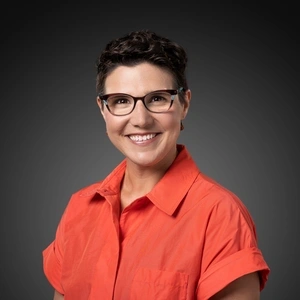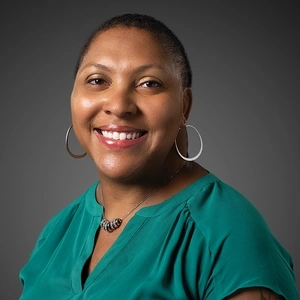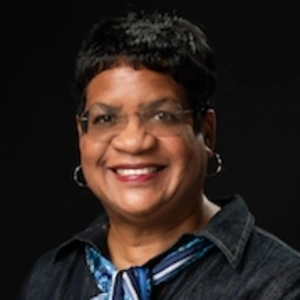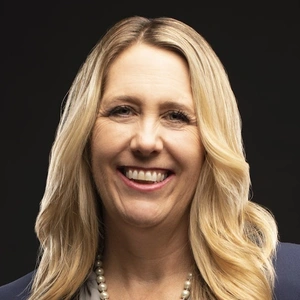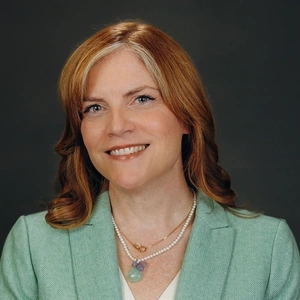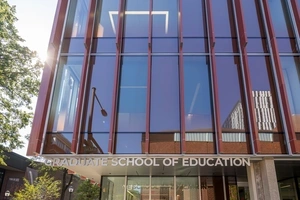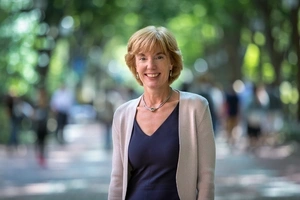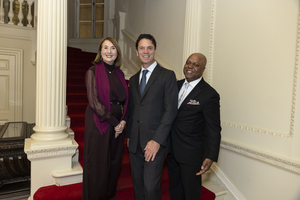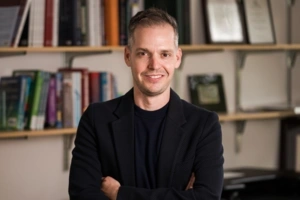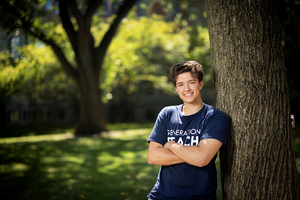Faculty Expert
-
Roberto G. Gonzales
Richard Perry University Professor
Policy, Organizations, Leadership, and Systems Division -
Alex Posecznick
Program Manager and Associate Faculty
Policy, Organizations, Leadership, and Systems Division -
Charlotte E. Jacobs
Director, Independent School Teaching Residency
Learning, Teaching, and Literacies Division -
Diane Waff
Director Emeritus of the Philadelphia Writing Project
Key research, policy, and practice centers across Penn GSE have welcomed new leaders for 2023–24. These individuals bring years of experience and broad knowledge to their new roles. They will help students, educators, and practitioners expand their work at the local and national levels, as well as support research and innovation.
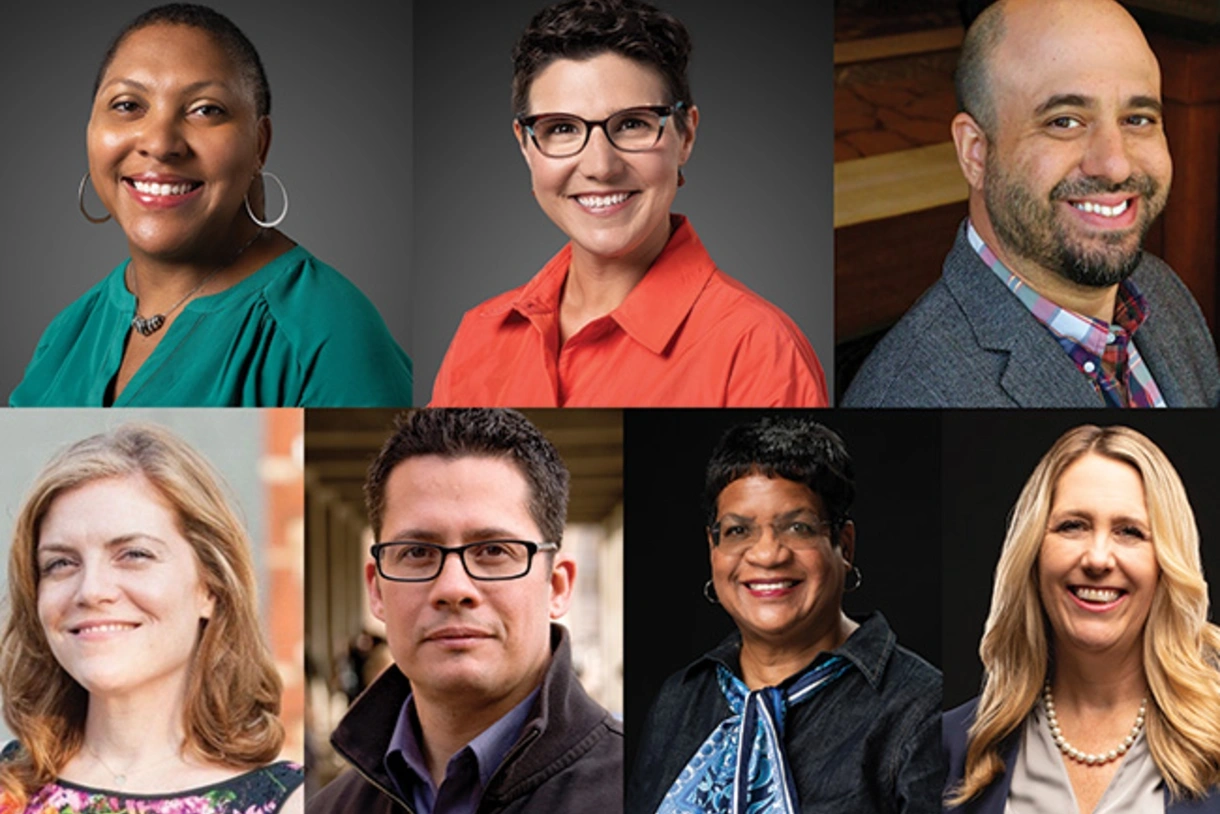
The Collaboratory for Teaching and Teacher Education
Sarah Kavanagh, Director
As the recently appointed director of the Collaboratory for Teaching and Teacher Education, Sarah Kavanagh said her new position aligns well with her commitment to educators, research, and continuing education.
“I have always strongly advocated for partnerships that bring together educators, policymakers, researchers, and practitioners. I saw this role as an opportunity to foster meaningful partnerships that can amplify our impact,” she said.
The Collaboratory is committed to advancing teacher education and supporting the K-12 educator community. As a center and a lab, it provides hands-on training, relevant research, and teacher education programs.
As educators face new pressures in the classroom and their field, Kavanagh said they need more training and support than ever. The Collaboratory, she noted, provides essential resources, including teacher training, related research, events, and conferences.
“The Collaboratory's commitment to conducting meaningful research and fostering public discourse means that our work has the potential to influence policies and practices that shape the future of education,” Kavanagh said.
Kavanagh hopes to expand the Collaboratory’s lineup of events, including the bi-annual Research Exchange Event, focused on pressing issues in teaching and educator learning, and December’s Research Designs & Measurement for Teacher Education Conference, a partnership with several universities, to explore improving research methodologies in teachering and teacher education.
Kavanagh said the center’s mission comports with her view that long-term strategies are essential to address teacher shortages and nurture educators.
“Investing in teacher professionalism is key to the lasting improvement of education systems,” she noted.
The Ethnography in Education Research Forum
Roberto Gonzales, Convenor
After an absence of a few years, the Ethnography in Education Research Forum is returning in 2024 with Professor Roberto Gonzales as its new chief. The Richard Perry University Professor with appointments at Penn GSE and the School of Sociology, Gonzales is a leading expert on immigration and migration.
Gonzales is the founding director of the Penn Migration Initiative, a university-wide program dedicated to advancing scholarship and knowledge exchange on immigration policy and immigrant communities.
Additionally, Gonzales is the author of several books, including Lives in Limbo: Undocumented and Coming of Age in America, based on an in-depth study following 150 undocumented young adults in Los Angeles over 12 years.
Alex Posecznick, Associate Director
Having previously served as the Forum's Book Award Committee Chair, Alex Posecznick is now also stepping up into the role of its associate director, working alongside Gonzales on the conference's relaunch.
Since 2011, Posecznick has both managed the programs in Education, Culture, and Society and served as a member of its associated faculty. An anthropologist and ethnographer by training, his professional expertise blends a strong background in academic policy and administration with scholarship on the culture of meritocracy and higher education; this provides him with a unique perspective on his new role.
HEARD: The Hub for Equity, Anti-Oppression, Research, and Development
Charlotte Jacobs, Co-Director
As the new co-director for HEARD, Charlotte Jacobs said her Penn GSE experience is coming full circle. As a doctoral student, Jacobs frequently attended events at the Center of Race and Equity in Education, including monthly lunches with other graduate students and tenured faculty to network, exchange ideas, and discuss their work and research across topics of race, gender, and class.
"It was formative for me as a scholar," recalled Jacobs, an adjunct assistant professor and co-director for the Independent School Teaching Residency program (ISTR).
Jacobs and her co-director, Gerald Campano, envision HEARD as a similar hub for research and collaboration.
“The vision is to be a place that promotes conversations and research focused on anti-oppression and equity in education,” she explained.
Jacobs said HEARD would like to increase student and faculty engagement, including encouraging graduate students to share research, inviting faculty from Penn GSE and across Penn to share work and ideas, supporting student and faculty research on equity in education and anti-oppression, and organizing events across the Philadelphia area and in local public schools.
HEARD hosts four annual conferences on equity and anti-racism as part of its work. This fall, the center will host an event on community and advocacy organizing related to Philadelphia schools. Jacobs said she hopes to expand ties across Penn and the local area.
“We’re continually thinking about how we can ground the organization in community-based work,” she said.
The Philadelphia Writing Project
Diane Waff, Director Emeritus
Diane Waff joined the writing project in 1991 while working as a School District of Philadelphia English and Special Education teacher and as director in 2010. Amid significant personnel changes, including Penn GSE’s new Dean Katharine O. Strunk and new SDP Superintendent Tony Watlington, and Stornaiuolo and McLaughlin Cahill joining PhilWP, Waff said she wanted to offer continuity and would remain involved for a transition period.
This academic year, Waff said she will work closely with Stornaiuolo and McLaughlin Cahill on three key areas:
- Develop and sustain projects for students and educators.
- Build grant writing and fundraising to support and expand programming.
- Expand and strengthen professional development in the School District of Philadelphia schools and community partnerships.
After building close ties across the Penn and Philadelphia communities, Waff will continue to liaise between PhilWP and its partners. She will focus on professional development and expanding ties with local partners, including the SDP, institutions including the Jewish Museum and African American Museum, and Penn Partners, such as Office of School and Community Engagement, Netter, Penn Museum, Teachers Institute of Philadelphia, the Mid-Career Program.
Among her many professional accomplishments, Waff noted that, in April 2022, PhilWP received an NEH grant from the National Writing Project’s Building a More Perfect Union, recognizing PhilWP’s work to support teachers using digital historical records and current publications.
As Director Emeritus, Waff said she’d like to expand PhilWP’s local programs, including a new collaboration providing writing support for K and 1st-grade teachers at two SDP schools, Henry C. Lea Elementary School and the Andrew Hamilton School, and tutoring at Lea Elementary. She also envisions growing PhilWP’s signature annual conference, the Celebration of Writing and Literacy, with its current partners, including the Teachers Institute of Philadelphia, Mid-Career, and the Penn Museum, and new collaborations.
Amy Stornaiuolo, Faculty Director
Amy Stornaiuolo, an associate professor in Learning, Teaching and Literacies and chair of Literacy Studies, has long admired PhilWP’s programs and its role in local and national dialogue about writing and supporting educators. She has served on the project’s advisory board for over a decade and now, as faculty director, is positioned to help shape the program’s future.
“PhilWP is a thriving, vibrant community of educators with deep roots and histories in Philadelphia schools, and I am so fortunate to have this opportunity to support and participate in those efforts,” Stornaiuolo noted.
In partnership with Diane Waff and Jen McLaughlin Cahill, Stornaiuolo said she hopes to expand some of the existing programs and partnerships, including Kid Writing, the Black Girls Literacies Initiative, Digital Discourse, and Project Write, and work on digital writing and how generative artificial intelligence will reshape writing and instruction.
Additionally, she said she hopes to expand partnerships with Penn GSE to expand work in SDP schools, particularly around early elementary literacy, and bring PhilWP resources to more schools.
"Our work with Kid Writing, for example, is a powerful means of supporting early literacy and reading development and has shown promising results,” Stornaiuolo said. “We would love to expand that program.”
Jen McLaughlin Cahill, Director
After 22 years as an English teacher in New York City public middle and high schools, Jen McLaughlin Cahill brings significant classroom experience to her new role as Director of the Philadelphia Writing Project. She said the program reflects her commitment to education, literacy, and supporting educators as a seasoned practitioner.
“I couldn’t be more thrilled to keep doing work I deeply care about, which includes amplifying voices of practitioners, teachers, practitioner researchers, and children and young adults,” said McLaughlin Cahill, a lecturer in Educational Practice.
Since joining Penn GSE in July, McLaughlin Cahill jumped headfirst into programming, including summer events and the program’s recent Celebration of Writing and Literacy conference. She said PhilWP’s impact is evident across the Philadelphia community, including youth programs, teacher development and training, and providing grants.
Cahill McLaughlin will work closely with Waff and Stornaiuolo and plans to soak up their institutional knowledge. She aspires to continue PhilWP’s commitment to literacy and writing to build bridges and advance public education.
“I want to center the voices of the teachers and the work they’re doing with their children and young people,” she said. “Writing is such a powerful form of amplifying the voices of the people who are not always centered in educational research or discourse to impact their new community directly.”
Media Inquiries
Penn GSE Communications is here to help reporters connect with the education experts they need.
